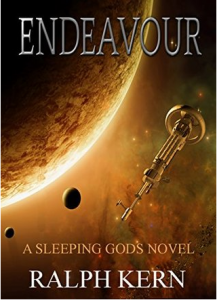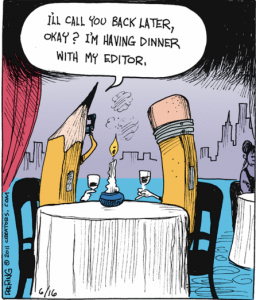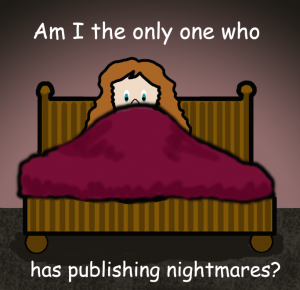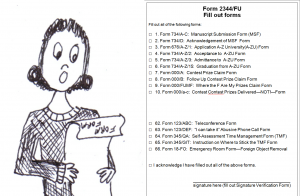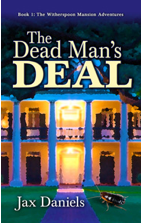
Sasquan (World Con) is coming up, and I’m so excited to be a panelist. I must get me my Sasquan uniform. Need this tee shirt!
It’s con season! Every year I kick off my summer of cons with BayCon over Memorial Day weekend. This year I’m a panelist on BayCon, ConVolution, and…WorldCon! I’m very excited about that last. But not everyone I know who I think should be invited to various cons, has been. This started me thinking on why was I invited when other just-as-deserving people (oh heck, I’ll be honest, more deserving people) don’t.
As I went through the weekend, I realized I wanted to be involved, not just attending. But how? Who would want me on a panel? What did I have to share after years doing pro journals, science docs, educational texts, and nonfic? Sure I’d kept up by always being in genre writing groups, learning and mentoring, but that was just writer’s groups…right?
That was the little devil inside me, jabbing his pitchfork in my thoughts. But the little angel was there, too. “You know a lot about writing,” the angel said. “You know you do.” The groups, the jobs, they were all about how to write to achieve goals in the best way possible.
So at one of the panels, I raised my hand and I asked, “How do I get on a panel.”
The answer was surprisingly simple—volunteer.
Wow. Mind-blowing. You mean just contact a con and ask? Yep. Best advice I got at that con. Take that first step in your journey of a thousand steps. It is the most important thing you can do. Ask. But I have a few more hints to help ensure the con chooses you over the next guy.
Find out which cons have writers workshops. Email the event coordinator and ask if you can be on it. Usually you have to have some publications to be one of the pros in the workshop, but a short story or two will qualify you in most cases. If you don’t have that (and I don’t), volunteer to moderate. That’s how I started in con writers’ workshops. They needed a moderator, and the guy running it asked me to help him out (I was an editor on his magazine).
The second thing you can do to increase your chances is to suggest panel ideas and offer to moderate them. Last year at one of the cons, I was on a villains panel, and very much looking forward to it. I was bummed when it was canceled because the person who had suggested it and was to be moderator had dropped out. I said, “I’ll moderate.” But no, still no go. She told me they like to have the person who suggested it, moderate it. I don’t know if this is across the board, but I have moderated every panel I have suggested.
Both of these suggestions hinge on being a moderator. That scares some people. Good news is moderating isn’t necessarily hard. Do a little research on the Web. Pay attention at cons you go to and see who moderates well and how they do it. Some moderators only moderate, not participating in the discussion themselves. This means you don’t have to be a subject matter expert, just interested, though I like to participate myself. One of the reasons I’m doing this is to get myself out there.
To get ideas on what you can suggest, look at the catalogs and see what areas are covered this year so you can suggest some for next year. Jot down things that interest you. If they interest you, they likely will interest someone else. Look around the internet. What are the controversies? What attracts your attention and interest? Cons cover a very wide range of topics. I’m interested in the writing and publishing, but you can find panels on costuming, music, television shows, anima, comics, and fandom covering science fiction, fantasy, and horror, either together or individually. The con has something for you…that is why you are there in the first place, right?
Remember also, the community has more than one con. Just because this con doesn’t pick you doesn’t mean the next one won’t. Do a little research and find more than one con to try.
Follow up. If you don’t hear, email and ask. Don’t pester, but sometimes this will put you in the right place at the right time. Also, if your first submission went astray, this will be a second chance for it to get through.
Don’t be a diva. These operations are run by volunteers who have day jobs and lives. If they don’t choose you or don’t get back to you this year, don’t take it personally. You don’t know why they didn’t. Could be your ideas didn’t fit with the theme. Could be your emails or application got lost in the shuffle (I’m pretty sure this happens a lot). Could be they had limits on quotas. Just take it in stride and try again next year.
Finally, be nice to the events’ coordinator when they do accept you into the program. I had a snafu one year that a very nice events’ coordinator bent over backward to help me fix. She didn’t have to. So I took her out for a drink when I got to the con. Not only did I have a lovely time getting to know her better, but I got invited back the next year without contacting the con first. Moral of the story? Some drinks or candy or chocolate chip cookies can go a long way.
Nine Steps to Participate in a Con
- Research and pick several cons to try
- Keep a log of ideas throughout the year.
- Join the writers’ workshop
- Contact the con and volunteer
- Submit panel ideas
- Follow up at a reasonable time
- Be nice to the events’ coordinator
- Be professional and polite where you don’t get the invitation you wanted.
- Rinse and repeat: try again next year.

